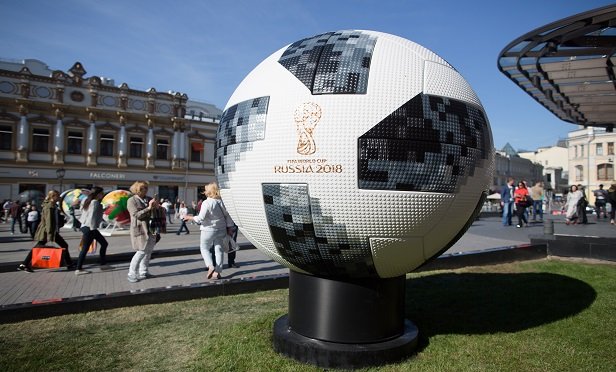 For this World Cup, FIFA has earmarked $134 million alone for insurance for clubs whose players get injured — more than a quarter of the prize money on offer to the 32 competing teams. (Photo: Andrey Rudakov/Bloomberg)
For this World Cup, FIFA has earmarked $134 million alone for insurance for clubs whose players get injured — more than a quarter of the prize money on offer to the 32 competing teams. (Photo: Andrey Rudakov/Bloomberg)
Over 1 billion people — or one in every seven persons on the planet — watched when Germany took on Argentina in the 2014 FIFA World Cup final. The spectacular numbers allow FIFA, the sport's governing body, to proclaim the quadrennial event "the greatest show on Earth."
In terms of visitors, worldwide audience and prize money — $400 million — the World Cup outstrips the other great show on Earth: the Olympics. It's not just the support of passionate fans that makes these events possible. Big or small, international or local, sporting events have an even bigger supporter — insurance. In fact, you can call it the "enabler."
Recommended For You
Want to continue reading?
Become a Free PropertyCasualty360 Digital Reader
Your access to unlimited PropertyCasualty360 content isn’t changing.
Once you are an ALM digital member, you’ll receive:
- Breaking insurance news and analysis, on-site and via our newsletters and custom alerts
- Weekly Insurance Speak podcast featuring exclusive interviews with industry leaders
- Educational webcasts, white papers, and ebooks from industry thought leaders
- Critical converage of the employee benefits and financial advisory markets on our other ALM sites, BenefitsPRO and ThinkAdvisor
Already have an account? Sign In Now
© Touchpoint Markets, All Rights Reserved. Request academic re-use from www.copyright.com. All other uses, submit a request to [email protected]. For more inforrmation visit Asset & Logo Licensing.







